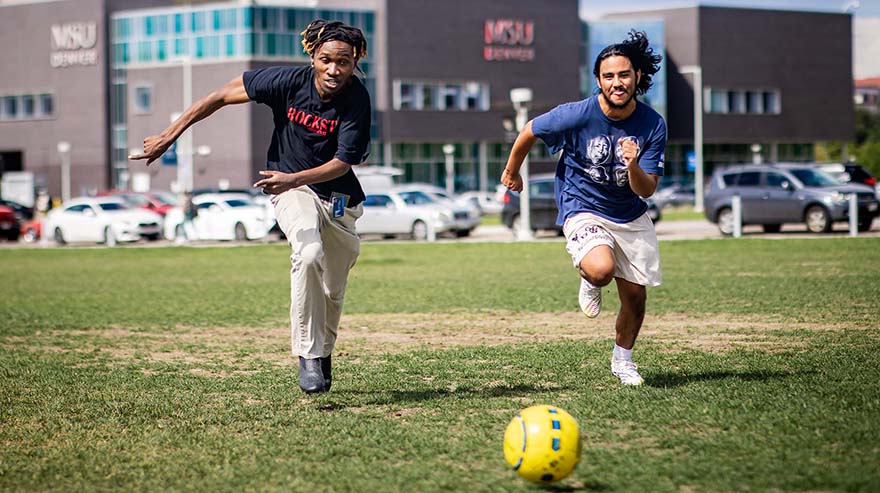Metropolitan State University of Denver strives to create supportive and equitable working environments where all employees can thrive. When workplace conflicts arise, employees have several avenues for seeking support and counsel, including MWI, MSU Denver’s virtual ombuds team.
In addition to working with the University’s Human Resources team and Office of Equal Opportunity, employees can access MWI’s independent, confidential resources designed to help resolve workplace disagreements before they become more serious.
Michael Stephens, one of two MWI ombuds working with MSU Denver employees, says that when someone contacts him, he emphasizes that his role is to be impartial and supportive.

“We discuss what it is that’s causing them concern,” he said. “We talk about the steps that they may have taken to address it. We brainstorm about what other options there might be. It’s not our role (as ombuds) to decide anything, but we try to be a supportive partner in thinking it through.”
Many times, simply lending a sympathetic ear to someone’s problems can be of benefit, Stephens said.
“The plain fact is having somebody that you can speak to openly and safely about issues that could be quite difficult to talk about with work colleagues — it’s just very helpful for people to have that outlet,” he said.
Stephens’ MWI colleague LaCrisia “Cris” Gilbert, said that in interacting with MSU Denver employees, the ombuds follow four basic tenets.

“The first is we are independent,” she said. “The second tenet is we are impartial — we don’t take the side of the University, and we don’t take the side of the visitors we work with. The third tenet is everything is confidential, and the fourth is we are informal. We don’t make formal decisions, nor do we conduct investigations. We don’t actually solve the conflict. We give people all the tools and resources that they need to resolve the issue.”
In practice, Gilbert said, the ombuds do a lot of conflict coaching and, when requested, conduct facilitations where they meet with an entire department to walk them through team-building exercises.
“There are supervisor-employee-type situations,” she said. “Some employees just don’t feel like there is enough expectation (outlined for) the kind of work they’re doing.” In such cases, she might provide advice on communicating with a supervisor or offer a facilitation.
During annual evaluations, “people may get an evaluation they’re not really sure fits them,” Gilbert said. In other cases, some form of harassment or discrimination can be a concern.
“People may call and have concerns that they’re being treated differently within their department,” she said.
Stephens said the issues employees present run the gamut from ordinary interpersonal disagreements to serious issues regarding workplace misconduct.

“We see conflicts with colleagues, communication challenges, questions about policies and practices or a workplace dilemma where they’re just not sure how to handle it,” he said.
“Every now and then, people are looking for somebody to be a mediator in a conflict,” he said. “If the parties involved in the conflict are looking for that role, the ombuds does provide that service.”
Confidentiality is guaranteed, Stephens said, and while the ombuds team members are not mandatory reporters — meaning they’re not obligated to report instances of misconduct that have been disclosed to them — there is a significant exception when there is a risk of serious imminent harm.
The ombuds process has its limitations, Stephens said. “There’s an acknowledgment that some problems can’t be easily and completely fixed,” he said, “but there’s almost always a sense of progress in helping people think it through.”
Employees can contact the ombuds confidentially through the University’s dedicated MWI page or contact Gilbert or Stephens directly.
Book a time to talk with Cris Gilbert by sending an email to ([email protected] and 214-802-3339). Schedule a time to talk with Michael Stephens by sending an email to [email protected] or by calling 413-341-6977.








